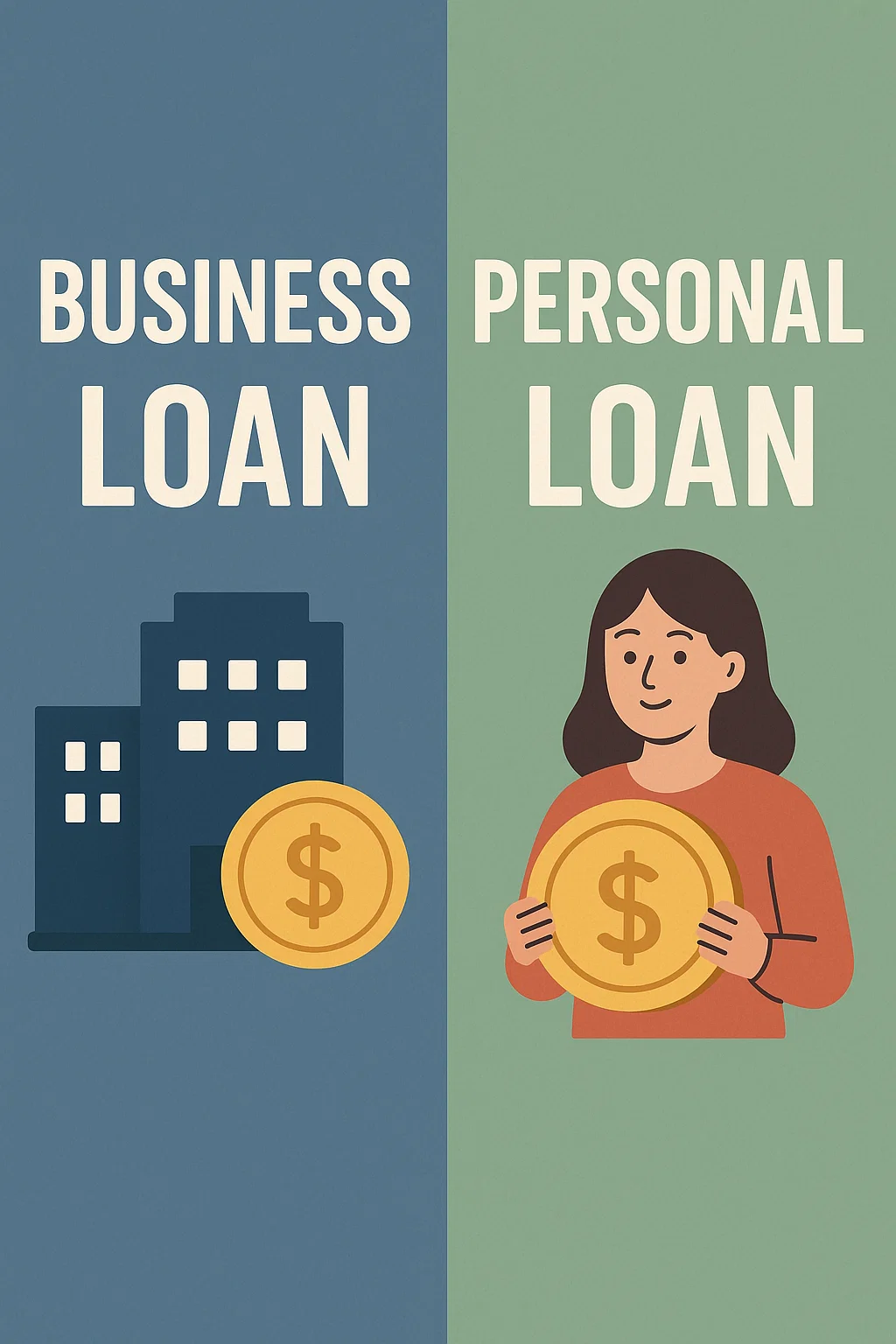“Priya,” Rohan began, looking perplexed at two different loan offers. “I need funds for a new marketing campaign and some immediate inventory. My bank offered me a personal loan, saying it’s faster. But I also qualify for a small business loan in India. They seem similar in terms of getting cash, but I’m worried about mixing my personal and business finances. What’s the smart choice here? When should I opt for a personal loan vs. business loan for funding my venture?”
Priya nodded, recognizing a common dilemma faced by many new and growing entrepreneurs. “Rohan, you’ve hit on a critical distinction that many overlook. While both can provide capital, their implications for your business and personal financial health are vastly different. Understanding when to use a personal loan vs. business loan is fundamental to smart funding for startups and crucial for separating business and personal finances.”
Rohan looked relieved. “So, there’s a definite ‘right’ and ‘wrong’ way to do this?”
“Absolutely,” Priya affirmed. “It’s a foundational ‘Smart Money Move’ to ensure your financial structures support your business’s sustainable growth without jeopardizing your personal stability.”
The Crucial Distinction: Why the Loan Type Matters
“Why can’t I just take the faster option, if it gets me the money I need?” Rohan asked.
Priya explained the core differences and their long-term impact:
- Borrower:
- Personal Loan: You, as an individual, are the borrower. Your personal creditworthiness (CIBIL score) and income determine eligibility.
- Business Loan: Your business entity is the borrower. Its financial health, revenue, profitability, and business credit score are primarily assessed.
- Purpose:
- Personal Loan: Designed for personal needs (marriage, medical emergencies, travel, home renovation). Funds can be used as you wish, but using them for business blurs lines.
- Business Loan: Specifically designed for business purposes (working capital, machinery purchase, expansion, marketing, inventory).
- Collateral:
- Personal Loan: Generally unsecured (no collateral needed), based on individual credit history.
- Business Loan: Can be secured (against business assets like property, machinery, inventory) or unsecured, depending on the loan type and lender.
- Interest Rates & Terms:
- Personal Loan: Often higher interest rates than secured business loans, shorter tenures (1-5 years).
- Business Loan: Interest rates can vary widely. Secured business loans generally have lower rates and longer tenures. Unsecured business loans might be comparable to personal loans.
- Tax Implications:
- Personal Loan: Interest paid is generally not tax-deductible (unless used for specific income-generating assets).
- Business Loan: Interest paid is typically tax-deductible as a business expense, reducing taxable income.
- Impact on Credit Score:
- Personal Loan: Default impacts your personal CIBIL score.
- Business Loan: Default impacts your business’s credit score (and potentially your personal score if you’re a guarantor).
Rohan’s Smart Choice: When to Opt for Which for Funding Your Venture
Rohan, now seeing the clear distinctions, started to outline his strategy for funding his venture wisely:
- When to Consider a Business Loan (The Preferred Route for Growth): “For most of our business needs, a business loan in India is the ideal choice,” Rohan stated.
- Purpose: “When the funds are directly for business operations, expansion, asset purchase, or working capital.”
- Benefits: “Interest is tax-deductible, helping to reduce our overall tax burden. It also builds the business’s own credit history, making future, larger business loans easier to obtain. Importantly, it ensures separating business and personal finances, which is critical for clarity and accountability.”
- Types to Consider: “Term loans for machinery, working capital loans for inventory, specific startup funding in India schemes, or even loans against receivables.”
- Priya’s Insight: Prioritize building your business’s financial identity. A strong business credit score is an asset in itself. Always aim for a business loan when the use is clearly for business purposes.
- When a Personal Loan Might Be a Temporary Consideration (Use with Caution): “While business loans are primary, I see niche situations where a personal loan might be considered, but with extreme caution,” Rohan mused.
- Early Stage Startups: “When the business is too new, has no formal financial history, or hasn’t established its own creditworthiness yet. A personal loan might be the only readily available option for very initial seed capital.”
- Small, Urgent, Unforeseen Needs: “For truly minuscule, unexpected business expenses where the process of a formal business loan would be too lengthy or cumbersome, and the repayment period is very short.”
- No Collateral for Business Loan: “If you don’t have business assets to pledge for a secured business loan, and your personal credit score is excellent for an unsecured personal loan.”
- Priya’s Insight: If you take a personal loan for business, treat it with utmost discipline. Clearly earmark the funds, repay from business income, and plan to transition to a business loan as soon as your venture builds a track record. Never use a personal loan for large, long-term business investments.
Rohan’s Checklist for Smart Funding Your Venture:
“This discussion clarifies everything. It’s not just about getting the cash, but how we get it,” Rohan summarized.
- Define the Purpose: “Is this truly a business expense, or a personal one?”
- Assess Business Creditworthiness: “Can our business qualify for its own loan?”
- Calculate Total Cost: “Compare interest rates, fees, and tax implications for both options.”
- Prioritize Separation: “Maintain distinct financial identities for business and personal finances.”
- Long-Term Vision: “How does this loan impact our future borrowing capacity and overall financial structure?”
“Exactly, Rohan!” Priya affirmed. “Mastering the choice between a personal loan vs. business loan is a fundamental ‘Smart Money Move.’ By making a strategic decision for funding your venture, you ensure smart funding for startups, robust personal finance management in India, and clearly separating business and personal finances, setting your enterprise on a solid path to sustainable growth and financial independence.”
Are you an entrepreneur in India weighing the options between a personal loan vs. business loan for funding your venture? Need expert guidance to make the smart choice for smart funding for startups, ensuring proper separating business and personal finances? Visit 21degrees.in and let our seasoned financial advisory team help you analyze your funding needs, assess the best loan type for your business stage, and build a sound financial structure for long-term success.




